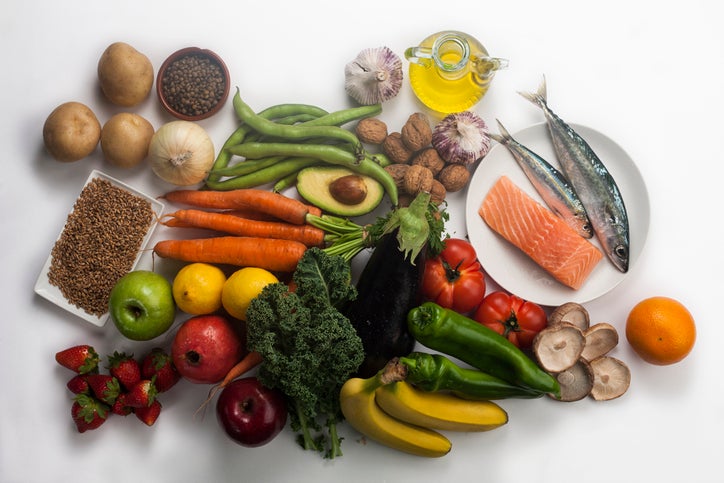
Nourish Your Kidneys
Nourish Your Kidneys : 5 Foods That Help Prevent Kidney Damage

Nourish Your Kidneys : Kidney health plays a fundamental role in our overall well-being. The kidneys filter waste, regulate fluid and electrolyte balance, control blood pressure, and assist in red blood cell production. Given their vital functions, it’s essential to take proactive steps to keep them healthy. One of the best ways to protect the kidneys from damage is through a nutrient-rich, kidney-friendly diet. In this article, we’ll explore five foods that can help prevent kidney damage and support overall kidney function.
1. Beetroot

Beetroot is a deeply colorful and nutritious root vegetable that provides numerous benefits for kidney health. It’s rich in antioxidants, vitamins, and minerals, which can help protect against kidney damage caused by oxidative stress and inflammation. One of the standout nutrients in beetroots is betalains, a type of antioxidant that plays a role in reducing inflammation throughout the body, including the kidneys.
Beetroot’s high nitrate content is also beneficial for kidney function. Nitrates have been shown to help lower blood pressure, which is crucial for preventing kidney damage. High blood pressure is one of the leading causes of kidney disease, as it can damage blood vessels in the kidneys over time. By helping to maintain healthy blood pressure, beetroot may reduce the long-term risk of kidney disease.
Additionally, beetroot is an excellent source of fiber, which aids digestion and helps control blood sugar levels. Since uncontrolled blood sugar can lead to kidney damage, beetroot is a great addition to a kidney-friendly diet. You can enjoy beetroot in salads, juices, or roasted as a side dish.
2. Cranberries

Cranberries are a well-known superfood that can help maintain kidney health by supporting urinary tract function. They contain proanthocyanidins, a type of antioxidant that prevents bacteria from adhering to the urinary tract walls. By preventing infections like urinary tract infections (UTIs), cranberries can help reduce the risk of kidney infections, which can arise if UTIs are left untreated.
In addition to their infection-fighting properties, cranberries are rich in vitamin C and other antioxidants that combat oxidative stress. Oxidative stress can lead to inflammation, which damages kidney cells and contributes to kidney disease. Cranberries also support the immune system, which helps keep the kidneys protected from harmful toxins and infections.
Cranberries can be consumed in various ways—fresh, dried, or as unsweetened juice. You can add them to smoothies, salads, or oatmeal to enhance both the flavor and health benefits. Just be cautious with store-bought cranberry juice, as many versions contain added sugars that can be detrimental to overall health.
3. Sweet Potatoes

Sweet potatoes are another kidney-friendly food that offers a variety of health benefits. These nutrient-dense vegetables are packed with beta-carotene, an antioxidant that helps protect kidney cells from oxidative damage. Beta-carotene also has anti-inflammatory effects, which can help reduce kidney inflammation and the risk of kidney disease.
Sweet potatoes are also an excellent source of fiber, which is essential for regulating blood sugar levels. Since high blood sugar is a major contributor to kidney disease, maintaining stable blood sugar is key to preserving kidney function. In addition to fiber, sweet potatoes provide essential vitamins like vitamin C and several B vitamins, which support overall health and immune function.
Unlike regular potatoes, sweet potatoes have a lower glycemic index, meaning they have a slower effect on blood sugar. This makes them a healthier choice for individuals aiming to prevent kidney damage. You can enjoy sweet potatoes in various ways, such as roasted, mashed, or baked, making them a versatile addition to your diet.
4. Garlic

Garlic is one of the most well-loved foods in many kitchens, and it’s packed with health benefits, especially for kidney health. Garlic is rich in antioxidants and anti-inflammatory compounds, which can help protect the kidneys from oxidative stress and reduce inflammation that could lead to kidney damage. One of garlic’s most important compounds is allicin, which is responsible for many of its health benefits.
Research shows that garlic can help lower blood pressure, a major risk factor for kidney disease. By acting as a natural vasodilator, garlic helps relax blood vessels and improve circulation, thus supporting kidney health. Moreover, garlic can help lower cholesterol levels, which further supports cardiovascular health and reduces the risk of kidney problems.
Adding garlic to your meals is easy and beneficial. You can incorporate it into soups, stews, stir-fries, or even enjoy it raw in salad dressings or dips. Its strong flavor makes it a delicious addition to any kidney-friendly diet.
5. Spinach

Spinach is a leafy green vegetable that is widely recognized for its health benefits, particularly in supporting kidney health. It’s loaded with antioxidants, such as vitamin C and beta-carotene, which help combat oxidative stress and reduce inflammation—two factors that contribute to kidney damage. These antioxidants protect kidney cells and ensure their optimal function.
In addition to antioxidants, spinach is an excellent source of folate, a B-vitamin that is important for maintaining kidney health. Folate supports cell regeneration and repair, which is crucial for protecting the kidneys from long-term damage. Spinach also contains plant-based compounds like lutein and zeaxanthin, which have been shown to have protective effects on the kidneys.
However, it’s important to note that spinach contains high levels of potassium and oxalates, which can be problematic for individuals with existing kidney disease. For those without kidney issues, spinach is a great addition to a kidney-friendly diet. You can enjoy spinach in salads, smoothies, soups, or as a cooked side dish.
Conclusion : Nourish Your Kidneys
A well-balanced diet is crucial for maintaining kidney health and preventing kidney damage. Including foods like beetroot, cranberries, sweet potatoes, garlic, and spinach can provide essential nutrients that help reduce inflammation, control blood pressure, regulate blood sugar, and protect against oxidative stress—all of which are important factors in kidney health.
While these foods can play a significant role in kidney protection, it’s always important to consult with a healthcare provider, particularly if you have pre-existing kidney conditions. A kidney-friendly diet, combined with regular physical activity and proper hydration, is an excellent strategy for ensuring the long-term health of your kidneys. By making smart dietary choices and taking care of your kidneys, you can support their function for years to come.







